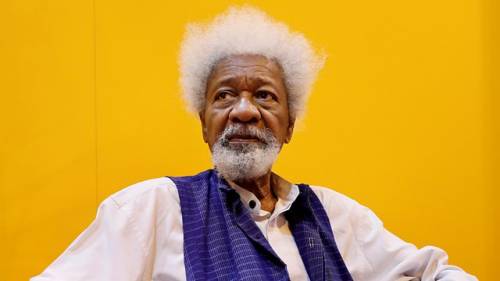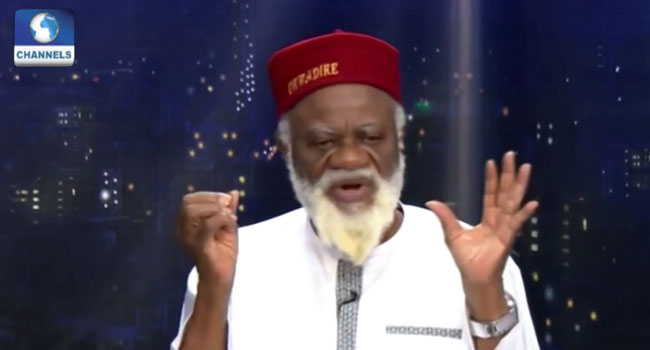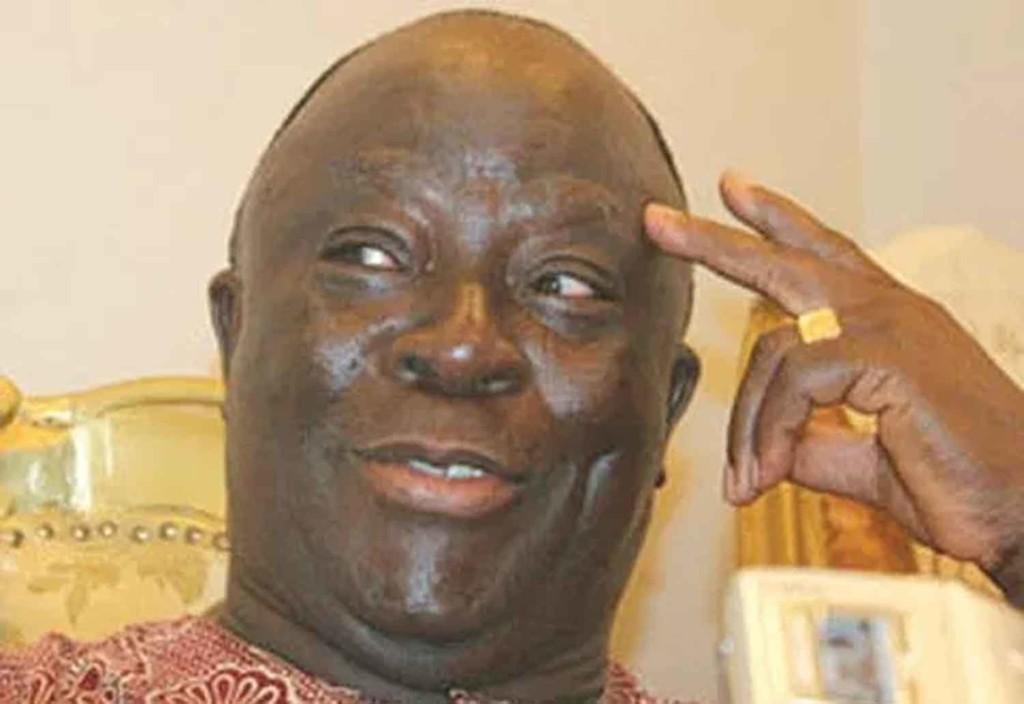What academia is singularly equipped to contribute to a people’s security is, I would suggest, the inculcation of a holistic awareness in others. By ‘others’ I refer to government and other policy makers and influencers of society, as well as the generality of the governed – that is, you and me. An understanding that a people’ s security depends absolutely on a recognition – accompanied by practice and conduct – that Security is not a single-track affair. Of course it is primarily a formal responsibility of the state. It is however, just as crucially, a participatory undertaking that involves the citizenry. Indeed, even at the risk of seeming to attempt to let the state off the hook, the people should assign about sixty percent of security responsibility to themselves, leaving just forty percent to the state. These are rough divisions but, the implication is clear enough – in their own interest, citizens should assume the major proportion of the task of securing their own existence through structures that are community based.
The state is unlikely to accede readily to this, because most states do not trust the polity. Being illegitimate, or having forfeited their legitimacy through misgovernance, self-alienation and/or outright criminalities, the state becomes so preoccupied with its survival that it sees even engagements of mutual benefit to both sides as enemy tactics. An attempted erosion of its authority.
Today, however, within this nation, few will deny that Nigerian humanity is rapidly joining the ranks of the endangered species. Only a minority is spared the routine of waking up in the morning, and sinking almost immediately into the gloom of fear, an oppressive inability to reassure oneself, and one’s household that, at the end of that working day, one would regain home in one whole piece. Within the home, the commonest expression is – sleeping with one eye open. As for a road trip virtually anywhere with national borders, the question is – are you fated to be ambushed, kidnapped, and marched into the deep forest, blindfolded, brutalized, starved, while negotiations commence over ransom for your liberty, and even – life? The consequence is that the productive energies and resources are sqauandered, diverted to that elementary aspect of security – survival, plain, simple and foremost.
This nation has cause to worry about more than physical survival. We find ourselves within a vortex that sucks a people under, spews us into an ethical void where future generations are programmed to accept as normal, even laudable, what our collective inner being once considered unthinkable. State neglect and indifference promote the language and posture of civic surrender as we careen heedlessly through blood greased chutes towards extinction. We know where the primary responsibility lies; unfortunately however, the first line victims are the least empowered in the strategies for their own survival.
Very few at this conference are equipped to deal with Boko Haram, with marauding cattle herdsmen armed with AK-47s, or with ISWAP and allies constantly expanding its domain across West Africa. But grassroots policing – under whatever name – can reduce the current epidemic of kidnapping, child rape and ritual killings. That, I hope, is so obvious that it needs no reiteration. That same grass-roots policing is a tested measure against the dehumanization of the weak, the exposed and other vulnerable of society. This has been proven again and again. The average citizen is not equipped to face the armed robber – we know to whose Security portfolio that belongs, but civic participation is also critical, since the citizen can be enrolled in the basic exercise of noting where a sudden, unexplained rush of affluence inundates the community. Members of that community can be schooled into understanding that they have a responsibility to themselves to ask questions. Cultivate alertness. Probe, monitor, and share the unusual. Refuse to be seduced by the trickle-down largesse that occasionally moistens their parched throats and renders them accessories to crimes against their own well-being and even – survival.
A synergy is thus what Security deeply requires. The hurt is shared when one’s child is kidnapped, and wrung through inhuman stress, often traumatized for life. Security battles with one arm tied to its side when it tries to operate along unyielding lines of separation. By contrast, an architecture of security gradation reduces the sense of estrangement. The bastardized slogan “The policeman is your friend” draws a bitter guffaw from citizens, but does not cease to be a legitimate ambition of the ideal state.
A special request. It is one that we do not hear often, and for reasons that are easily identified. However, if only once in a while, social conscience demands that it be voiced. And so: let the cloak of humaneness be extended – in all its affects – to those who place their lives at risk to ensure that society survives, and that its members – that is,
you and I – enjoy even a modicum of existence in safety and dignity. Their excesses, and abuse of power, wherever detected, must of course be resisted and countermanded by the strenuous exertion of the social will and its powers of mobilization. Such, to the eternal credit of Nigerian youth, has been the ENDSARS movement, now etched as a milestone on Nigerian history.
What society also owes itself however is a rigorous avoidance of turning into the very monstrosities that it arouses and mobilizes itself to expunge. When acts of sheer sadism are tolerated as the norm, we coarsen our own humane sensibilities and teach youths that all ethical barriers are banished and all that is left is a recourse to barbarism at its rawest and crudest. I am open to a challenge from anyone on the justice of beating a policeman to death, setting him on fire, then sharing his flesh – all this in full public glare, not attributable to state propaganda. Listen to the following open admission by two “activists” to a group of journalists in Ibadan, one of the most history suffused, economically vibrant cities on the African continent, certainly among the most densely populated. Join young “Abiodun, 17, and Mubarak 24, during an interview with journalists at the police headquarters in Eleyele, Ibadan. First, Abiodun;
“On Sunday October 22, Mubarak asked me to follow him to Alabata area in Ibadan where his wife was staying. We got to Iwo Road and saw that the road had been blocked. Smoke was billowing. When we moved closer to see what was happening, we saw human beings being burnt. …
The mob was hitting the burnt bodies with sticks, and started taking the body parts. Mubarak came to me and said he wanted to take some of the body parts. He said he had someone he would sell them to. Mubarak went to take the two skulls….
Mubarak corroborated Abiodun’s confession. His words:
“Some people in the crowd removed hands, legs, fingers and feet, while others gathered the ashes from the burnt bodies and took them away. I told Abiodun I would take the skulls…
Dear colleagues, in whose ‘just cause’ was this abhorrence perpetrated? I repudiate whatever share of such a barbaric fiesta of decadence vicariously attaches to me. And I deplore all glib notions of “vicarious guilt”, “just deserts” or “collective entitlement” that go to mute voices of revulsion, the dismissive waves of unconcern, the lack of responses of proportionate public horror, all of which collaborate to designate such
increasingly commonplace scenes as the advent of a “new normal”, become mentoring grounds for a new generation.
We have arrived at that stage, I propose, where a conscious and sustained effort at factoring in the humanity even of state enforcers must become part of societal awareness. It cuts both ways, known sometimes as the law of reciprocity. It calls for a strategy of reducing the sense of alienation, the praetorian culture that is instinctively assumed by, or conferred upon, security agencies, most notoriously, its military, and the ‘mimic’ elite police formations. Permit me to insert a supporting voice that I just happened upon this morning as I browsed through the newspapers. I quote:
“We need a radical restructuring of the security agencies, especially the police; not the sort of restructuring that focuses on building new barracks and purchasing new uniforms. No. We need reforms that make the police a civilian service, not a force. We need a police that refocuses on protecting citizens, their properties and liberties. not regime protection.”
The words of Dr. Sam Amadi, former chairman of NERC, in The Sunday Punch, November 20. And of course there are various ways of muting that mentality of “Force” and bringing it closer to civil society. The creation of second, third or fourth spheres of security, as represented by governance tiers and community policing, student cadet units and civilian reserves – both military and police – equally serves to blunt the sharp edges of professionalized divisions in social constructs. Such an approach demystifies the uniform, that symbol of alienated authority that has become – one does acknowledge – unavoidable struts and braces in the scaffolding of modern society.
There do exist accessible models. All the foregoing, I readily concede, reaches towards idealized options, but there is nothing wrong with holding them up as desirable, and as ultimate social targets. Such models were operational in one or two Scandinavian countries during World War II, and states such as Israel operate their own versions of such formulation till today. Again, I remain aware that the Nigerian social actualities make such thinking seem utopian but then, that very in extremis of a dire, societal abandonment, one that approaches a state of total anomie, calls for drastic solutions. The recent anguished cry of the Sultan of Sokoto was not wrung from the alarmist throat of idle royalty; it should shatter all hermetic thinking that continues to pander to a nation’s systemic collapse. A step by step proceeding cannot be faulted. At least, everyone knows what has been openly bruited as – state police. That paving stone
is as solid as any on which to step, as we attempt to scale the security boulder. The arguments have been objectively exhausted. Only the will to implementation remains stubbornly elusive. Perhaps this gathering will enable us to understand – why?
I wish you all a productive exchange.
Wole SOYINKA
A.R.I,, Abeokuta, Ogun State Nov. 29, 2020









